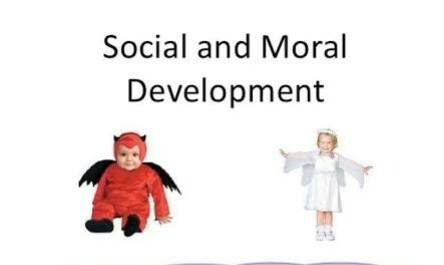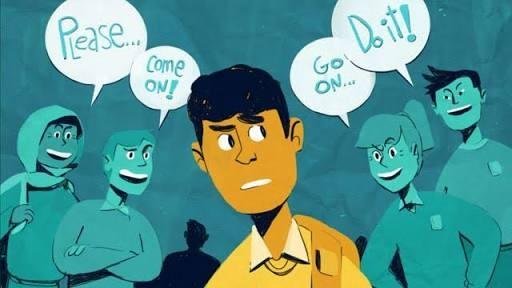SOCIAL AND CULTURAL INFLUENCE ON MORAL DEVELOPMENT.

Moral development is an ongoing process that occurs within the context of a person's family, community, and society as a whole. As teen determine what important to them and strike to establish their own value system, the influence of others --both positive and negative --groe more important.
PEER GRÒUP PRESSURE

Peer group can have an enormous influence on teens' moral development. Because teens are still discovering who they are and what is important to them, they look to their peers at approval and guidance. Peers also help teens clarify their value by discussing what's important and providing feedback. Positive peer Influence help teens build stronger conviction and behave according to their values.
Teens who are desperate to become more popular or go gain acceptance can be highly susceptible to negative peer pressure. In their insecurity, they may look up to peers who " break the rules " and show little regards for their own well-being or that of others. Instead of condemning immoral or illegal conduct, these teens imitate it in the hope of gaining praise and acceptances from others. That's how many teens get involved in drugs, drinking, sexual activity, shoplifting, and other negative behaviors that they later regret .
POPULAR CULTURE
Teens' moral development is also heavily influenced by the popular culture, or the culture that prevail in modern society. Today, the media tend to dominate popular culture. Television, movies, music, magazine, and advertising all portray behaviour and can influence perception of right and wrong.
The media sometimes present negative behaviour in ways that may seem glamorous to adolescent. A successful rock star uses vulgar language. A popular movie shows violence as an acceptable means of resolving differences. Advertisement for alcohol suggest that people really have more fun when they drink. Television programs present rude, immoral, selfish, and antisocial behaviour as amusing and harmless. Impressionable teems who are trying to establish their own identities need critical thinking skills to interpret the messages they receive from the media.
***FAMILY AND COMMUNITY***

Parent have the primary responsibility for teaching their children moral values and helping them develop an accurate moral compass. Schools reinforce the basic values a society needs to function, such as honesty and cooperation. Many families a d individual also draw on their religious faith for more guidance. Some teens seem to reject the values of their parents but over time most come to recognize the importance of a healthy system of morality that all can live by. Parent who practice why they preach and who live according to their professed value are more likely to have a positive influence.
Open and honest communication within the family helps teens learn values. Parent who discuss core values such as honesty and responsibility within the context of daily life can help teens see the role these values play inKeeping families and societies functioning. Teen also learn more about value by being given more responsibility within the family. As they make their own choice --and their own mistakes --they can learn form each experience.
Some teens do, of course, break the rules and get into trouble. Parent who know or suspect that a teen is engaging in morally unacceptable behavior need to confront the teen. Even though teens may be reluctant to communicate with their parents about such problems, it is their parents' responsibility to help them change their inappropriate behavior.
Teens learn moral responsibility within the community, too. Every community has expectation and rules to follow. Teens discover that they must follow the rules or suffer the consequences. Gradually they also recognize the reason behind rules of society, teens become better prepared to live successfully in that society.
Sometimes, despite a family's best effort, a teen seems determined to pursue immoral and harmful behavior. In such cases, the family may need to seek outside help. The teen might be more willing to listen to a favorite teacher than the family members. Some families choose to get assistance from a member of the clergy or staff counselor. Teens with serious behavioral problems may need help from professional counselors.
Thanks for visiting my blog!
All images sources : google.com
I run an N. G. O @penachild and soon her steem account will be up and running ,when that happens all this will be moved down there.
I am @SPIRITWALKER